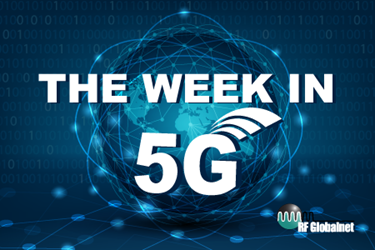The Week in 5G: 12/3/2019 — U.S. Cuts Off Govt. Subsidies for ZTE, Huawei Gear; South Korea Govt. Pressures Telcos to Invest More, Cut Consumer Prices
By Ed Biller

In late November, the United States Federal Communications Commission (FCC) officially cut off government funding for equipment from Chinese telecommunications equipment giants Huawei and ZTE, citing security threats. Trade Group the Rural Wireless Association – of which Huawei is a part – states that about 40 U.S. companies are affected.
The FCC also suggested that companies receiving government subsidies be required to remove from use any equipment from the companies already have in place, reports the Associated Press. The report adds that the FCC is seeking comment on “how to help rural telecoms financially. Bills in Congress have proposed setting $700 million to $1 billion aside.”
Also in the U.S., T-Mobile has switched on its 5G network, but the first phones capable of functioning on the network – which functions at 600 MHz — will not be available for sale until Dec. 6, 2019. Those phones are the OnePlus 7T Pro 5G McLaren and the Samsung Galaxy Note10+ 5G. A release from T-Mobile adds that both phones will be able to use the 2.5 GHz band utilized by Sprint’s 5G network when the two companies complete their merger.
Finally, CNN reports — citing a JP Morgan forecast released Monday — that Apple is expected to release four 5G-ready phones in 2020.
In the EU, the consensus among governments is that 5G concerns extend beyond security, and include “non-technical factors such as the legal and policy framework to which suppliers may be subject to in third countries,” according to a draft document prepared ahead of a meeting of European ministers, as reported by CNBC.
The draft document – set for finalization by the EU ministers in December – also states that European countries should “consider the need to diversify suppliers in order to avoid or limit the creation of a major dependency on a single supplier.”
Also in the EU, French telecommunications regulator Arcep has submitted to that nation’s government its conditions for awarding licenses in the 3.4 GHz to 3.8 GHz band in France, according to a press release from the regulator.
“The 3.4-3.8 GHz band is the core band for 5G whose deployment promises to make French businesses more competitive and drive innovation, in addition to satisfying users’ expectation of having access to increasingly powerful mobile services,” states the release.
In India, rules and prices are yet to be set for 5G spectrum auctions. Initial base price proposals for spectrum by the Telecom Regulatory Authority of India (TRAI) have been criticized as “exorbitantly” expensive.
"[The] majority of our operators believe that the spectrum for 5G is overpriced by at least 30-40 percent compared to international standards and auction in other markets like South Korea and the US," said Rajan Mathews, Director General of COAI (Cellular Operators Association of India).
According to a comprehensive report on the spectrum, technology, and regulatory climate in India by Mashable India, TRAI has held fast, declaring the offered prices “reasonable.”
In Japan, after announcing in September that it selected Nokia and Ericsson as "primary vendors" for its 5G network, telco KDDI now has announced plans to work with Facebook to introduce “a real-time sales system that uses augmented reality and virtual reality, taking advantage of 5G's increased bandwidth and high speed,” according to a report by Nikkei Asian Review.
Per the report, the sales system will initially be used to help retail customers virtually try on makeup and clothes before they buy.
In other technology news, ZDNet reports that South Korean telco KT has successfully transferred data transfer between its 5G network and a satellite.
“The carrier performed data transfer through its network with the Mugunghwa 6 satellite, run by its affiliate KT SAT, 36,000 kilometres away in space,” states the report adding that KT developed a hybrid router and used multiple 5G handsets to accomplish the test.
Despite being at the forefront of 5G buildouts, South Korea is pressuring its top three mobile operators to do even more with 5G in the coming year; the mandate comes from newly installed Minister for Science and ICT Choi Ki-young.
South Korea’s government invested 8.2 trillion won ($6.95 billion) into 5G in 2019, according to a report by The Korea Times, and Choi promised unspecified tax breaks for telcos that “actively invest” even more into 5G in 2020, as well as lower prices.
SK Telecom CEO Park Jung-ho was among those who soured at the latter suggestion, reportedly stating, "as it costs a lot to set up network infrastructure, it is a bit early to talk about lowering prices.”
